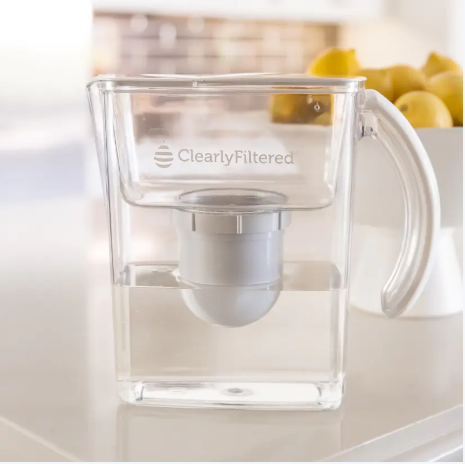
Hydration Smarts: What You Need to Know
Most of us have heard for years how important it is to stay hydrated. Beginning with our early years of education in our health classes it was stressed to us the need to drink up to 8 glasses of water daily. It is something that we understand from an early age but often overlook in our busy lives.
The real impact of how important it is to stay hydrated is very easy to ignore. We come to rely on thirst as an indicator of our liquid needs and reach for various substitutes for water such as coffee, soda and juices, feeling confident that we are quenched. In truth, more than 50% of Americans are in some state of dehydration daily despite our fluid intake. If we were to actually think about the fact that up to 64% of our adult body weight is water and in the case of an infant, up to 75% of their body weight is water, it would be easier to understand the need for hydration. If we lose even 1% of our body weight from fluid loss, we can begin to feel the effects of dehydration such as fatigue. If we lose 2% of our body weight from fluid loss we begin to have mental confusion and after losing 10% of our body weight from fluid loss it becomes a medical emergency. Some of the ways we become dehydrated include fever, diarrhea, burns, being in higher altitudes and extreme exercise. We are familiar with the need to hydrate under these conditions, but it is just as important to hydrate daily because of the good work water does to keep us healthy.

What Water Does For You
Water:
- Regulates you body temperature
- Converts food to components needed for survival – digestion
- Acts as a shock absorber for brain and spinal cord
- Helps deliver oxygen all over the body
- Needed by the brain to manufacture hormones and neurotransmitters
- Forms saliva
- Keeps mucous membranes moist
- Allows body’s cells to grow, reproduce and survive
- Flushes body waste
- Lubricates joints
- Water is the major component of most body parts
“The way to get started is to quit talking and begin doing.”
— Walt Disney

Simple Ways to Increase Your Water Intake
With just a little attention to how often you could be drinking water instead of your favorite go-to drink, you can start to improve your levels of hydration. Start enjoying the healthy benefits of proper hydration by trying these simple ideas. It will help you to maintain normal bowel function, improve your skin, energize your muscles and even help to fight fatigue and keep your focus.
- Invest in a sleek water bottle and carry it with you always
- Drink with a straw…it will help you to drink more water
- Schedule set times to drink water just before you eat or at break time
- Replace at least one of your regular drinks per day with water
- Set alarms or reminders on your phone or computer (there are even apps now!)
- Make up flavored water ahead of time to keep it on hand
- Play water games invite your neighbors to join in a challenge!

How Much Water is Enough?
Don’t forget, while you are hydrating it is important to keep your electrolytes in balance. Hydration should be over time in small amounts, not all at once as that can lead to loss of important minerals your body needs. The Institute of Medicine determined that an adequate intake (AI) for men is roughly 3 liters (about 13 cups) of total beverages a day. The AI for women is 2.2 liters (about 9 cups) of total beverages a day. If you stay within these limits or close you will avoid dehydration or over hydrating.
Electrolytes include these common minerals: Sodium, Chloride, Calcium, Magnesium, Phosphate, Potassium and Bicarbonate. A great way to get these minerals is by increasing your intake of the following fruits and vegetables…
- Apples – Magnesium
- Avocados – Magnesium
- Bananas – Magnesium, Potassium
- Beans – Phosphate
- Black Beans – Magnesium, Phosphate
- Broccoli – Calcium, Magnesium

- Carrots – Magnesium
- Cucumbers – Magnesium, Potassium
- Dates – Potassium
- Figs – Potassium
- Garlic – Phosphate
- Kale – Calcium
- Peas – Phosphate
- Potatoes – Magnesium

- Raisins – Magnesium, Potassium
- Sweet potatoes – Magnesium
- Tomatoes – Potassium
- Turnip greens – Calcium
- Watermelon – Potassium
Fibromyalgia and Water
Many people who suffer with Fibromyalgia are prone to excessive sweating. It is thought that temperature sensitivity is the result of miscommunication between the nervous system and hormones sending the wrong signals to the brain to regulate body temperature. To combat the dehydration that this can cause it is important to drink plenty of water. Dehydration contributes to fatigue and brain fog which is already problematic with Fibromyalgia. Water flushes the toxins and generates energy as it enters through a cells membrane. Water helps to regulate your temperature and by eliminating the waste that burdens your kidneys and liver it helps to breakdown the vitamins minerals and other nutrients your body needs to use them. The simple activity of drinking water can make a big difference and is an essential ingredient in the therapy of Fibromyalgia patients.

Helping the Elderly to Hydrate
Dehydration in the elderly is a common issue that if addressed early enough can prevent bigger health problems. As we age, our body water content decreases. Combined with medications that we take, our aging kidneys and limited mobility, dehydration is a constant threat. Here are some facts that show how important it is that we make hydration a priority in our lives and that of our elderly loved ones.
- Dehydration has been associated with increased mortality rates among older adults
- Dehydration can accelerate or bring about emergency hospitalization and/or increase the risk of hospital stays
- Dehydration is a frequent cause of hospitalization of older adults and one of the ten most frequent diagnoses responsible for hospitalization in the U.S.
- Dehydration has been associated with many elderly health issues, including elderly confusion, impaired cognition, falling and constipation
- It is estimated that avoidable costs of hospitalizations resulting from dehydration is $1.14 billion, annually
Some things you can do to improve hydration for your loved one…
- Offer fluids on a regular basis all day long
- Be sure to offer at least 8oz each time medications are taken
- Keep water bottles or coolers nearby seniors at all times
- Make special water drinks that are attractive with strawberry or coconut water
The sensation of thirst is diminished with age and it is difficult to encourage hydration when this is the case. A gentle reminder to drink before they get thirsty is helpful and with regular attention to the need to hydrate, the onset of dehydration can be avoided. The following is a guideline for meeting hydration requirements for seniors ….
- If you are 65 or older, your mission is to get in ~2 Liters per day, or 9 glasses (1 glass = 8 oz) of fluid.
- If you have kidney or heart problems, please ask your doctor for specific amounts.
- Remember that all liquid counts (milk, soup, coffee and tea, popsicles) and some fruits and vegetables too.

What You Should Know About Coenzyme Q10 (CoQ10)
Coenzyme Q10 (CoQ10) is an essential compound that plays a crucial role in the body’s energy production process. Here are some reasons why CoQ10 is important:
1. Energy production: CoQ10 is a key component of the electron transport chain, which is responsible for generating adenosine triphosphate (ATP), the primary energy currency of cells. It helps convert food into usable energy, particularly in organs with high energy demands like the heart, liver, and muscles.
2. Antioxidant activity: CoQ10 acts as a potent antioxidant, protecting cells from damage caused by free radicals. It helps neutralize harmful molecules and prevents oxidative stress, which is associated with various chronic diseases and aging.
3. Heart health: CoQ10 is highly concentrated in the heart muscle, where it plays a vital role in maintaining cardiovascular health. It supports the heart’s energy needs, helps regulate blood pressure, and protects against oxidative damage. CoQ10 supplementation has been shown to improve symptoms in heart failure patients and may have potential benefits for other heart-related conditions.
4. Mitochondrial function: CoQ10 is essential for optimal mitochondrial function. Mitochondria are the powerhouses of cells, responsible for producing energy. CoQ10 helps transport electrons within the mitochondria, facilitating ATP production and maintaining mitochondrial health.
5. Anti-aging effects: As an antioxidant, CoQ10 helps protect cells from oxidative damage, which can contribute to aging. It may help reduce the appearance of wrinkles, improve skin health, and support overall vitality.
6. Statin-induced muscle pain: Statin medications, commonly prescribed for lowering cholesterol, can deplete CoQ10 levels in the body. Supplementing with CoQ10 may help alleviate muscle pain and weakness associated with statin use.
7. Neurological health: CoQ10 is found in high concentrations in the brain, where it supports energy production and acts as an antioxidant. It may have neuroprotective effects and has been studied for its potential benefits in neurodegenerative disorders such as Parkinson’s disease and Alzheimer’s disease.
While the body can produce CoQ10 naturally, its production decreases with age, and certain medical conditions or medications can further deplete its levels.

Statin, or cholesterol lowering drugs are known to cause CoQ10 deficiencies but so are these medications:
1. Beta-blockers: Certain beta-blocker medications used to treat high blood pressure and heart conditions, such as metoprolol and propranolol, have been associated with decreased CoQ10 levels.
2. Tricyclic antidepressants: Some tricyclic antidepressant medications, including amitriptyline, trazadone and imipramine, have been reported to potentially deplete CoQ10.
3. Antipsychotics: Certain antipsychotic medications, such as haloperidol and chlorpromazine, have been linked to decreased CoQ10 levels.
4. Oral hypoglycemic drugs: Some oral hypoglycemic medications used to manage diabetes, like glyburide and glipizide, have been associated with CoQ10 depletion.
5. Diuretics: Certain diuretic medications, including thiazide diuretics like hydrochlorothiazide, have been reported to potentially reduce CoQ10 levels.
6. Oral contraceptives: Some studies suggest that oral contraceptive use may lead to decreased CoQ10 levels, although more research is needed to establish a clear link.
I recommend taking 100mg a day as a maintenance “stay healthy” dose and 200mg a day for anyone with heart disease, low energy or if taking a statin or other drug that may lower your CoQ10 levels.

Grounding, also known as earthing, refers to the practice of connecting with the Earth’s energy by physically touching or being in close proximity to the ground. It involves walking barefoot on grass, sand, or soil, or using grounding devices that simulate the Earth’s energy indoors.
The concept behind grounding is based on the idea that the Earth carries a negative electrical charge, and when we come into direct contact with it, we can absorb its electrons. This contact is believed to have various health benefits due to the exchange of energy between our bodies and the Earth.
Some potential benefits of grounding include:
1. Reduced inflammation: Grounding has been shown to have anti-inflammatory effects, potentially reducing pain and improving overall health.
2. Improved sleep: Grounding has been associated with better sleep quality and duration, possibly due to its ability to regulate circadian rhythms and reduce stress.
3. Enhanced mood and stress reduction: Grounding may help reduce stress, anxiety, and depression by promoting relaxation and balancing the body’s stress response.
4. Increased energy levels: Many people report feeling more energized and revitalized after grounding, possibly due to improved blood flow and oxygenation.
5. Improved immune function: Grounding has been suggested to have immune-boosting effects, potentially enhancing the body’s ability to fight off infections and diseases.
6. Pain relief: Some individuals experience reduced pain and discomfort, particularly in conditions such as arthritis, fibromyalgia, and chronic pain syndromes.
7. Improved cardiovascular health: Grounding has been linked to improved heart rate variability, blood pressure regulation, and overall cardiovascular health.
It is important to note that while grounding has gained popularity and anecdotal support, scientific research on its benefits is still limited. More studies are needed to fully understand the mechanisms and potential therapeutic effects of grounding.







